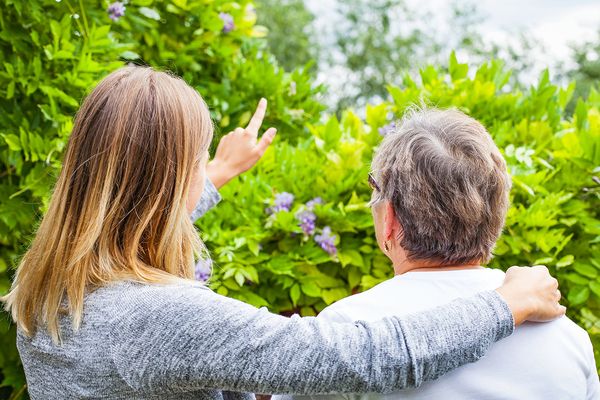
In a perfect world, caregiving for aging loved ones would be easy. In the real world of caregiving, however, loving the elderly while providing care for them may not always be. In fact, at times, the task can be tiresome, frustrating, overwhelming, and difficult. Here’s a closer look at the complex relationship between love and caregiving, along with tips for caregivers struggling with the emotional challenges of caregiving.
Understanding the Caregiver’s Role
The role of a caregiver may seem straightforward on paper, with “typical” responsibilities such as preparing meals, assisting individuals with their physical needs, helping with a broad range of day to day tasks, and providing transportation. However, caregiving is also accompanied by many unwritten and unquantifiable tasks, including providing comfort and companionship, demonstrating patience, and forgiving others.
In “Caregiving is a Journey of Faith, Hope, and Love,” caregiver Mary Olivia Patiño, M.T.S. reflects on her own experiences as a caregiver. Her goal? To promote the “gift” caregivers are to society, along with affirming the key roles love and gratitude play in caregiving.
Embracing the Gift of Caregiving
There are many different ways caregivers can show love and, in doing so, improve the lives of the people for whom they care. Patiño suggests wearing bright colors, striving to be positive, smiling, listening, laughing, watching television together, praying together, and encouraging seniors to share stories, memories and wisdom as a few simple things caregivers can do to feel more connected with aging loved ones in their care.
Keep in mind that if an individual in your care is being difficult or obstinate, it’s not necessarily deliberate. Rather, they may be feeling lonely, scared, grief, or depressed. Even small acts of love can help struggling seniors feel valued, respected, honored and cared for which, in turn, can reverse these behaviors.
One other tactic for helping to maintain a positive attitude through the challenges of providing elder care? Put yourself in their shoes and imagine what it’s like to suddenly have to rely on others for tasks you were once able to do for yourself.

The Significance of Self-Care
Unfortunately, many caregivers neglect an equally important strategy which can help them feel and show love more readily: Self-care.
Paraphrasing Macrina Wiederkehr’s Seven Sacred Pauses, Patiño reinforces the value for caregivers in stopping to “let the soul catch up with the body.” From taking a walk to reveling in the healing power of nature to spending time with friends to journaling their feelings, memories, and experiences, taking time out for themselves can also help caregivers find the emotional strength and grace they need to persevere.
Like all relationships, caregiving is a journey with its share of ups and downs. By keeping in mind that the roots of caregiving are gratitude and love (for each other, our families, and ourselves), you can help make the aging journey easier for your loved one while simultaneously easing the caregiving journey for yourself.
If you're looking for a comprehensive resource for family caregivers, check out our online Family Caregiver Guide.mmLearn.org offers a large library of free videos for caregivers of older adults, covering topics pertaining to senior care. Whether you are a healthcare professional or a family caregiver, if you are caring for an older adult we know that you will find mmlearn.org an essential learning and guidance tool for all of your caregiver training needs. For more useful resources for caregivers, including the video, "The Art, Science, and Spirit of Caring -- A Different Perspective," access our database of free online caregiver videos today.

